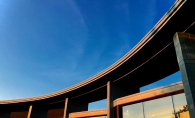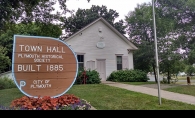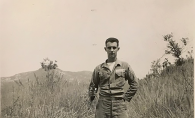With a population of just more than 70,000, the city of Plymouth ranks as the third largest suburb of the Twin Cities metro area. It is also “America’s Best Place to Live,” according to Money Magazine 2008 (and it’s ranked in the top 10 again since then). The overwhelming sense of community is what first drew this hometown magazine to set up shop in Plymouth, and, a decade later, we offer a look back at some notable developments in our city’s recent history.
City and Development
Expanding entertainment: The past 10 years have brought about a lot of change in the local arts scene, while other things (think: 42-year-old Music in Plymouth) remain the same. To accommodate these, the Hilde Performance Center provides a one-of-a-kind experience to the residents of Plymouth. In 2003, the center, dedicated to longtime residents Al and Jayne Hilde, was turned over to the city. In 2008 the Plymouth City Council approved master plans for improvements, and a two-phase project finalized its first phase in 2011; conclusion of phase two is on-track for 2015, with a new central entrance, veterans’ memorial, small stage with amphitheater seating, concrete paths, fountain and irrigation, and electrical systems on tap.
Public safety developments and predicted population growth: It’s possible that no one is more qualified to talk about growth than someone who has been on the city streets for more than two decades. “When I first became a police officer, there were fewer than 50,000 people residing in the city. We have experienced explosive growth over the past 25 years,” says Plymouth’s police chief Mike Goldstein, who first started with the force in 1990.
According to the city of Plymouth’s comprehensive plan, Plymouth’s population is anticipated to increase 11 percent between 2006 and 2030, during which time residents can expect to see substantial household and employment growth.
Plymouth is approaching a developed status, which is defined as a community with more than 85 percent of the land area developed, and will increasingly face issues of maintenance and redevelopment rather than those associated with new construction or planning.
Shops and Food
Retail offerings: Plymouth’s residential growth, of course, encourages business expansion, too. Never did this seem truer than post-recession, when Plymouth’s strength as a community rebounded.
Among new businesses to open up shop in town is consignment store The Wabi Sabi Shop, offering upscale home furnishings to its customers since September 2009. “We’re not like a thrift shop; it’s all very nice, high-end furniture and home décor, including area rugs, art work, lighting and accessories, in addition to all of our furniture,” owner Kay Frandsen says.
The Foursome, which first opened in 1935, has a family tradition in Plymouth, too. (The store moved from its historic Wayzata location in 2009.) “My grandfather bought the store, then my father ran it, and now myself and a couple of other siblings run the store,” says Nicole Chose, vice president and marketing director. A clothing store, The Foursome carries everything from men’s suits and sport coats to casual wear, including big and tall sizes. Chose also has a shoe department with sizes for both men and women.
Attracting business, new and old: Similarly, Cowboy Jacks opened its doors in March 2009. Serving American cuisine with a country barbecue twist, the restaurant also doubles as a full bar open until 2 a.m. seven nights a week. “Plymouth is very family- and community-oriented,” manager Anastasia Wolf says. “Anytime we have anything like a benefit or a charity event, the whole community gets behind it. There’s really a sense of family and a sense of camaraderie around here.”
The Sunshine Factory enjoyed a 38-year tenure in New Hope before deciding to make the move to Plymouth. Hoping to build upon the success the restaurant’s owners established just 3½ miles down the road, “The Factory” (as it’s often called since re-opening in 2013) was able to revamp the menu with new offerings such as flatbreads, different fresh fish items, broadened sautéed entrées and additional appetizers. “We were able to do some different things with our new kitchen layout,” owner and president Randy Rosengren says. “It’s been well received.”
&
Cowboy Jacks
4120 Berkshire Lane N.
The Foursome
3570 Vicksburg Lane N.
Hilde Performance Center and Plymouth Public Safety
Sunshine Factory
4100 Vinewood Lane N.
The Wabi Sabi Shop
10100 Sixth Ave. N.
The Foursome Photo by tate carlson, Hilde photo by rachel boyd, Sunshine factroy photo by Emily J. Davis









